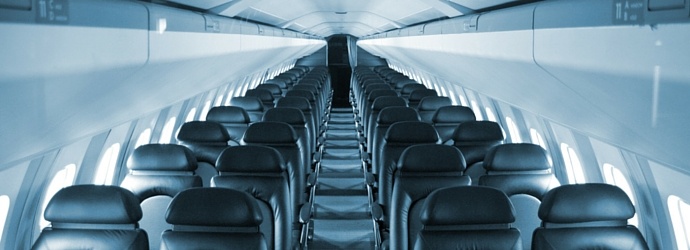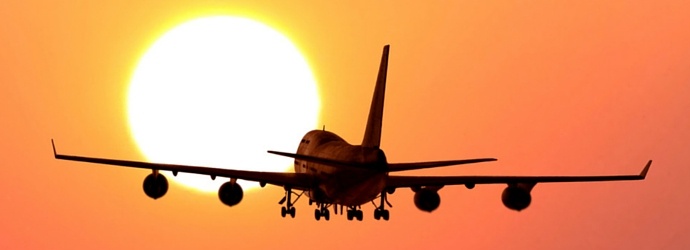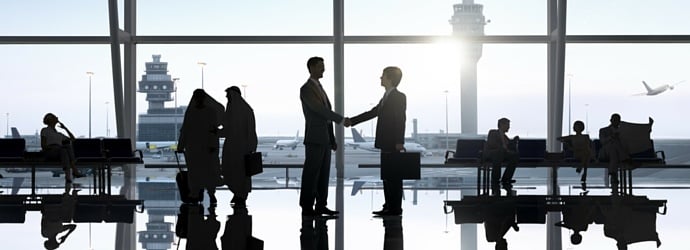9 Business Travel Trends That Will Shape 2016
Posted by Mike Atherton on 17 December, 2015

If there’s one thing, without a doubt, we can expect in 2016, it’s that global corporate travel spending will continue its year-on-year ascendance. But specifically, what technologies and trends can we expect to emerge or shape the business travel industry in 2016?
I’ve complied nine trends that I think will greatly impact the industry.
1. Introduction of New Distribution Capability

As previously discussed on our blog post on what New Distribution Capability (NDC) means for TMCs, this new standard will provide travel agents and corporate clients with the same capability as airline websites. NDC will enable some Travel Management Companies (TMCs) to offer more pricing transparency and choice of ancillary products, both at the point of sale and post-booking. IATA’s roll out has already begun and we will see some innovative, direction-setting implementations in 2016.
2. Lufthansa’s GDS surcharge

It seems that Lufthansa has resisted the pressure to rethink its GDS booking surcharge thus far. Although Lufthansa’s move was – at best – clumsy, the question for 2016 is: are we likely to see other major airlines follow suit and introduce a similar charge? This would force travel agencies to follow different booking processes for different airlines, accelerate adoption of NDC in their technology or bite the bullet and pay the additional fee, meaning higher fares. Alternatively, after a (disputed) reported decline in bookings after the fee's introduction, could Lufthansa still U-turn and abolish the surcharge?
3. Expansion of mobile payment usage

Apple Pay has brought mobile payment technology into mass use, and in 2016 innovative corporates will increasingly adopt this technology for travelling employees. By linking into expense management systems, mobile payment enables better policy management at point of sale and real-time payment data reporting, amongst many other data improvements.
4. Virtual Card Numbers for reconciliation

Virtual Card Numbers (VCN) act as unique identifiers for corporate bookings. They make it easy to manage and reconcile corporate booking and payments, as VCNs can have controls applied such as the maximum amount that can be paid, plus useful data can be added to transactions like department codes. These obvious benefits will see the growth of VCN usage continue, as a number of businesses switch from traditional corporate payment products to VCNs in 2016.
5. Sharing economy corporate growth

With Airbnb and Uber targeting the corporate travel market, and other services developing and maturing all the time, the sharing economy will continue to have a huge impact on travel. In 2016 we can expect more and more businesses will adopt these services, as sharing economy providers continue to develop their business services to offset duty of care fears.
6. Wearable tech for travelling convenience

2016 will see the continued growth of wearable tech, with its usage drifting from leisure to business travel. Wearable tech can be considered as the next stage in the evolution of mobile itinerary management applications. The rise of the “quantified self” will see the plethora of on-body devices and items associated with individuals (e.g. luggage) merge into a single data driven experience. Smart watches, phones, activity trackers, RFID tagged jewellery and smart luggage allow travellers to track themselves and their performance. There are opportunities for TMCs to provide enhanced concierge services, or for corporate clients to provide the best possible support to travellers by integrating wearable tech data into holistic, proactive travel support programs.
7. Continued development of the Asian corporate travel industry

The corporate travel market will continue to boom in China and India in 2016. The top 1000 corporates in both of these Asian countries have drastically increased their travel spending and GBTA forecasts China to surpass the US in business travel spending in 2016. As corporate travel grows for organisations located all over the world, business travellers need to be acute to cultural differences.
8. The rise of bleisure travel

The line between business and leisure travel may become increasingly fuzzy in 2016. The rise of so-called ‘bleisure’ travel, where typical leisure holiday activities are fused into business trips, is set to continue. For businesses it’s a cost-effective way of reducing stress and increasing engagement in travelling employees.
9. Investment in risk management

Risk management is another area of corporate travel that is growing in importance all the time. Events in 2015, such as the November Paris attacks, highlight the unpredictability of global risks, and multinational companies are increasingly waking up to this. Mobile itinerary management tools help mitigate risk by enabling precise traveller tracking and communication to support travellers.
As travel technology advances, mobile technology will become a necessity within corporate travel. Make sure you're ahead of the trend and download our guide on the future of business travel and discover what leading industry experts have to say.


